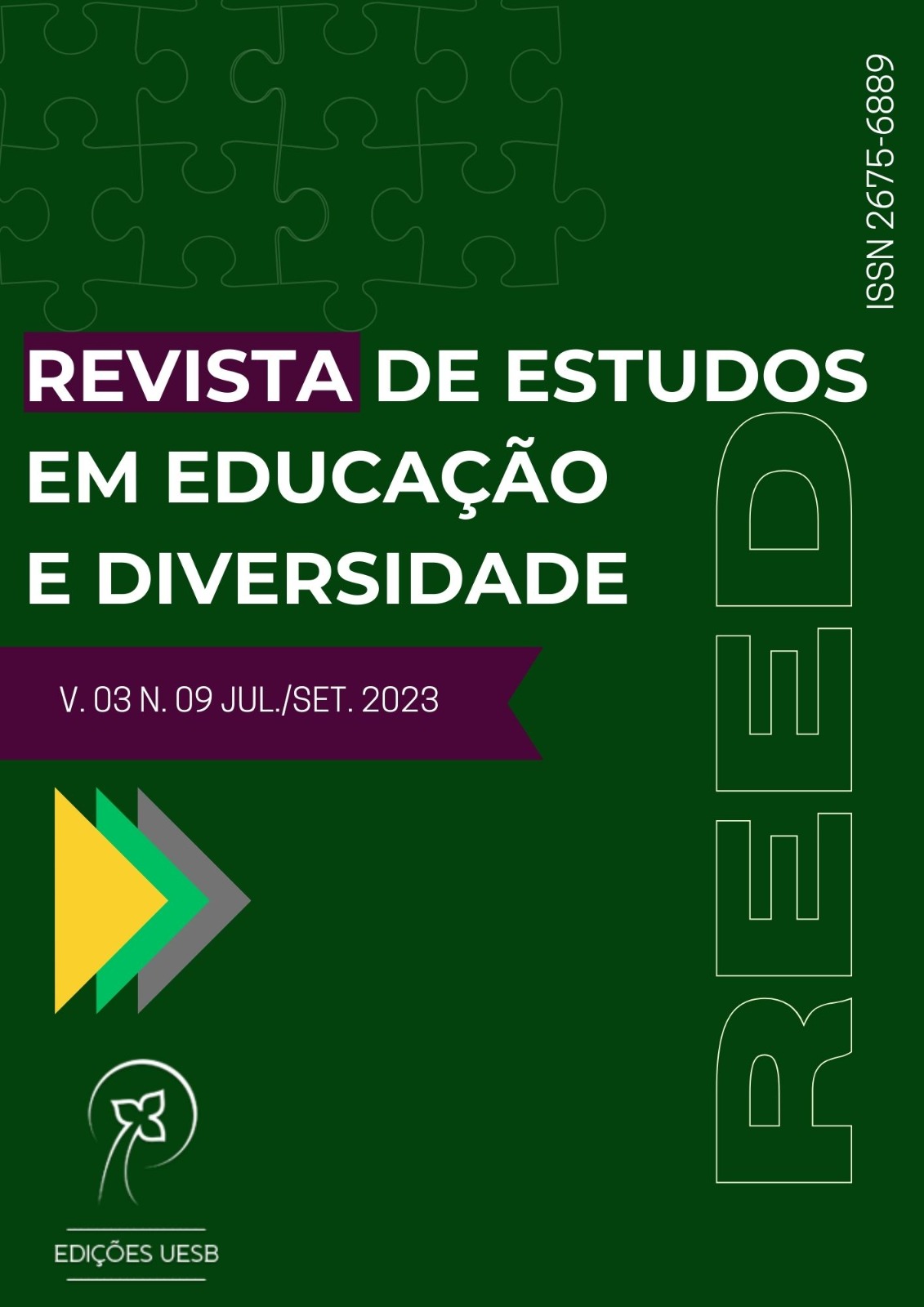Paulo Freire's theory and practice: a counter-hegemonic paradigm for the construction process of reading and writing
DOI:
https://doi.org/10.22481/reed.v5i12.11586Keywords:
EJA, LiteracY, Paulo Freire Method, Reading, WritingAbstract
This article is the result of a study conducted on Paulo Freire's theory and practice, considering the process of building reading and writing in Youth and Adult Education as a counter-hegemonic paradigm. The aim in this study is to investigate Paulo Freire's theories as methodological foundations for the acquisition of reading and writing. The theoretical contribution is anchored mainly in Freire's theories, which are: Pedagogia do Oprimido (1987); Conscientização (1980) among other works that collaborated for the foundation of this work, as well as other authors who research, discuss and problematize the theme in question. Methodologically this research is characterized as qualitative-descriptive (Minayo, 2002); (Gil, 2008) and equally militant (Jaumont and Varella, 2016), having as empirical field a public school of the municipal education in the city of Amargosa-BA. For data production, semi-structured interviews were used with students and an open questionnaire, through the Google Forms platform with teachers, using Content Analysis (Bardin, 1977) as a support for data treatment. The study revealed that it is urgent to reflect on the legacy of Paulo Freire and his revolutionary literacy method, since, this research has revealed the rich contributions of the said author to the process of building reading and writing.
Downloads
References
ANDRADE, Eliane Ribeiro. Os sujeitos educandos na EJA. TV Escola, Salto para o Futuro. Educação de Jovens e Adultos: continuar... e aprender por toda a vida. Boletim, v. 20, 2004.
BARDIN, L. Análise de Conteúdo. Lisboa: Edições 70, 1977.
FREIRE, Paulo. Conscientização: teoria e prática da libertação: uma introdução ao pensamento de Paulo Freire. 3. ed. São Paulo: Moraes, 1980.
FREIRE, Paulo. Pedagogia do oprimido. 17. ed. Rio de Janeiro, Paz e Terra, 1987.
FREIRE, Paulo. Pedagogia da Autonomia: saberes necessários à prática educativa. São Paulo: Paz e Terra, 1996.
GIL, Antônio Carlos. Métodos e técnicas de pesquisa social. 6. ed. São Paulo: Atlas, 2008.
JAUMONT, Jonathan; VARELLA, Renata Versiani Scott. A Pesquisa Militante na América Latina: trajetória, caminhos e possibilidades. Revista Direito e Práxis, Rio de Janeiro, v. 07, n. 13, p. 414-464 2016.
MINAYO, Maria Cecília de Souza (org.). Pesquisa Social. Teoria, método e criatividade. 18. ed. Petrópolis: Vozes, 2002.
TROMBETTA, Sergio; TROMBETTA, Luís Carlos. Vocação Ontológica. In: STRECK, Danilo R.; REDIN, Euclides; ZITKOSKI, Jaime J. (orgs.). Dicionário Paulo Freire. 2. ed. rev. e ampl. Belo Horizonte: Autêntica Editora, 2010. p. 416-419.
Downloads
Published
How to Cite
Issue
Section
License
Copyright (c) 2024 Revista de Estudos em Educação e Diversidade - REED

This work is licensed under a Creative Commons Attribution 4.0 International License.
You are free to:
Share - copy and redistribute the material in any medium or format; Adapt - remix, transform, and build from the material for any purpose, even commercially. This license is acceptable for Free Cultural Works. The licensor cannot revoke these freedoms as long as you follow the terms of the license.
Under the following terms:
Attribution - You must appropriately give credit, provide a link to the license, and indicate if any changes have been made. You may do so in any reasonable way, but not in a way that suggests that you or your use is endorsed by the licensor.
There are no additional restrictions - You cannot apply legal terms or technological measures that legally restrict others to make any use permitted by the license.






